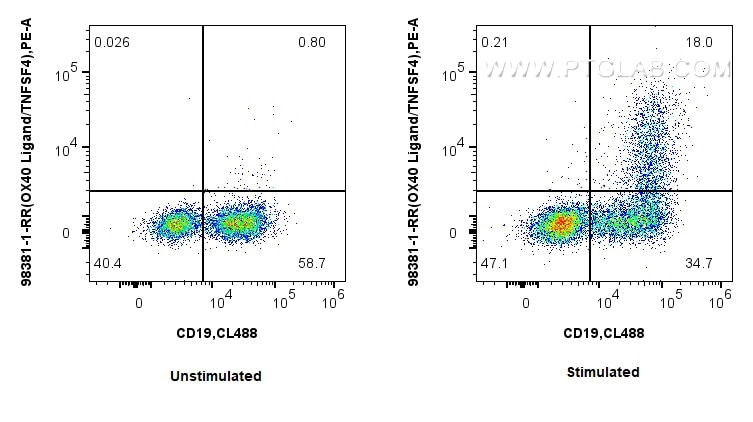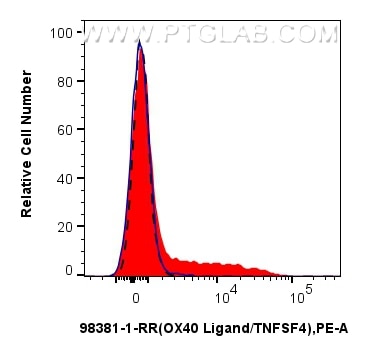Validation Data Gallery
Tested Applications
Recommended dilution
| Application | Dilution |
|---|---|
| This reagent has been tested for flow cytometric analysis. It is recommended that this reagent should be titrated in each testing system to obtain optimal results. | |
Product Information
98381-1-PBS targets OX40L/TNFSF4 in FC applications and shows reactivity with mouse samples.
| Tested Reactivity | mouse |
| Host / Isotype | Rabbit / IgG |
| Class | Recombinant |
| Type | Antibody |
| Immunogen | OX40L/TNFSF4 fusion protein Eg1573 相同性解析による交差性が予測される生物種 |
| Full Name | tumor necrosis factor (ligand) superfamily, member 4 |
| Calculated molecular weight | 22kDa |
| GenBank accession number | NM_009452.2 |
| Gene Symbol | Tnfsf4 |
| Gene ID (NCBI) | 22164 |
| Conjugate | Unconjugated |
| Form | Liquid |
| Purification Method | Protein A purification |
| UNIPROT ID | P43488 |
| Storage Buffer | PBS only{{ptg:BufferTemp}}7.3 |
| Storage Conditions | Store at -80°C. |
Background Information
The tumour necrosis factor ligand superfamily member 4 gene (TNFSF4, OX40L), which encodes for the T cell costimulatory molecule OX40 ligand, has been identified as a susceptibility gene for the development of systemic lupus erythematosus (SLE). OX40L/TNFSF4/CD252 is a co-stimulatory checkpoint protein expressed by several types of immune and non-immune cells (PMID: 15750594, 19778912). TNFSF4 mRNA is expressed in melanoma cell lines and melanoma samples, including those with low lymphocytic infiltrates, and is not associated with the ulceration status of the primary tumor (PMID: 31501955).

